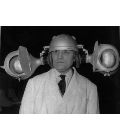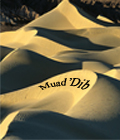 |
 Compressors, limiters, maximizers...(was: Maybe a dumb question?) Compressors, limiters, maximizers...(was: Maybe a dumb question?) |
2clix 
Doctor Obvious
  

Registration Date: 17-11-2007
Posts: 317
Helpfulness rating:
 |
|
I read a lot about limiters, compressors, eqing, etc. all the time but its still like a foreign language to me. I read that when you finish a tune you should lower the volume on your mixer so to avoid clipping then take it to a wave editor, normalize then limit then normalize to raise the loudness... my question is since im just starting down this path of learning what everything does, should I just let things clip and keep writing new stuff and as I gradually learn new techniques go back and try to apply those techniques to see if it helps? or dont let it clip, fiddle with it till I get it right and learn by mistakes?
p.s. Does anybody want to take a trip down memory lane and upload some of their first dnb tunes and put em up side by side against your newer tunes to see how things have changed. I would really love to hear the diff.!
Peace
__
Time is never wasted when you're wasted all the time.
|
|
|
22-11-2007 04:54 |
|
|
Paracyte 
Crazy Bouncin Sinusoid
   

Registration Date: 07-12-2006
Posts: 1,015
Helpfulness rating:
 |
|
Allright ,
This question what u gave here is for more then a book to answer,but i try to simplify for ya buddy.
1st thing try to avoid clipping ,less clip less limiter job to do ,less sound changes.
try to make ur mix with not much a clipping that will do only good things.
Eqing.
thats long and very precise process ,there is a thousends of technics how to eq ur mix and instruments ,depending what really u like to have on the end of the process and what sound u operating.
simply - if ya have bass line and want to give it a beef on sub give some mor 40-60 hz on eq and u see difference ,if you want ur snare have more attack give some 1500 hz ,
generaly there is lots of tables where you can find which part of bandwidth is responsible for which.
Limiter/Maximizer
Limiter that a lovelly baby which gives you that comfort of removing the clipping from ur final mix or track on usually u can set the treshold and few more things,
Maximizer as a name show ,maximize a sound to the levell (depend how u set that ) which is good for the mix.
compressor.
In simple terms, a compressor is an automatic volume control. Loud sounds over a certain threshold are reduced in level; quiet sounds are not reduced. In this way it reduces the dynamic range of an audio signal.
But like i said ,try to find some more info as its subject for a book if not for 2 
Remember ,if you will have a clear mix ,then u will have a easier work with those badboyz above.
Hope it helped u a bit..
cheers mate/
__
My Soundcloud
|
|
|
22-11-2007 05:31 |
|
|
Halph-Price 
Zombie Algorithm


Registration Date: 22-12-2004
Posts: 6,160
Helpfulness rating:
 |
|
PUMP PUMP PUMP UP THE READ THE FUCKING MANUAL(RTFM)

__
|
|
|
22-11-2007 05:54 |

|
|
2clix 
Doctor Obvious
  

Registration Date: 17-11-2007
Posts: 317
Helpfulness rating:
 |
|
I know I know, wish it was just programmed into my fucking brain
Paracyte- that is a BIG help! kinda puts everything into perspective. Thank you 
__
Time is never wasted when you're wasted all the time.
|
|
|
22-11-2007 07:01 |
|
|
Paracyte 
Crazy Bouncin Sinusoid
   

Registration Date: 07-12-2006
Posts: 1,015
Helpfulness rating:
 |
|
| quote: |
Originally posted by 2clix
I know I know, wish it was just programmed into my fucking brain
Paracyte- that is a BIG help! kinda puts everything into perspective. Thank you 
|
No worries mate ,we here to help buddy.
bigups.
__
My Soundcloud
|
|
|
22-11-2007 08:11 |
|
|
Muad'Dib 
Andrejnalin
    

Registration Date: 02-12-2003
Posts: 4,197
Helpfulness rating:
 |
|
Actually, limiter and maximizers are both compressors.
Limiter is a compressor with very fast attack (working) time and very precise type of reaction. This enables it not to allow most of the clipping to occur by reacting very fast at some sounds that tend to go over the headroom space.
A maximizer is a compressor which helps bring up the overall volume of the track by getting special settings. That's because the today's music industry is obsessed with getting louder and louder tracks.
I believe you know this but might be helpful if you dont, a dynamic range is the sonic space in dB that the audio format has available for recording the audio signal. For instance, a CD has a dynamic range of total 96dB. Which means that the maximum difference between the quietest sound and the loudest sound recorded can be 96dB (or, the maximum loudness of a sound/track on a CD can be 96dB). The important thing is that the dynamic range limits the dynamic of a recording. This possesses no problem to nowadays pop/electro/dnb/trance tracks, as they use dynamic ranges of total + - 70dB (so 96dB is more than enough for them), but when you need to record an orchestra which typically gives 90dB or higher difference between the quietest and loudest sounds, that presents a problem.
You use compressor to lower the dynamic range of a track. The compressor, as Paracyte said, lowers the louder sounds, bringing them into the loudness level of the quieter sounds, which gives a soundwave without peaks or much difference between the quiet and loud sounds (depends on the compressor settings, of course). By doing this, you can push up the volume of the track (with the, typically, GAIN knob) without the fear that that will introduce clipping. Also, you give a chance to the quieter sounds to be heard in a track. You destroy some of the dynamic of the track, but, for return, you have an even sounding track (which is typically desired for electronic and other mostly non-classical musics).
There, I hope this clears up some more. If you have something strange, please ask 
BTW I renamed the name of the thread. It's more descriptive now. 
__
Thinking about becoming an Image-Line/FL Studio customer? Want a 10% reduction in price? Use this affiliate link:
http://affiliate.image-line.com/BADEBDG473
There is no such thing without its opposite
-Bene Gesserit
|
|
|
22-11-2007 11:10 |

|
|
|
|
